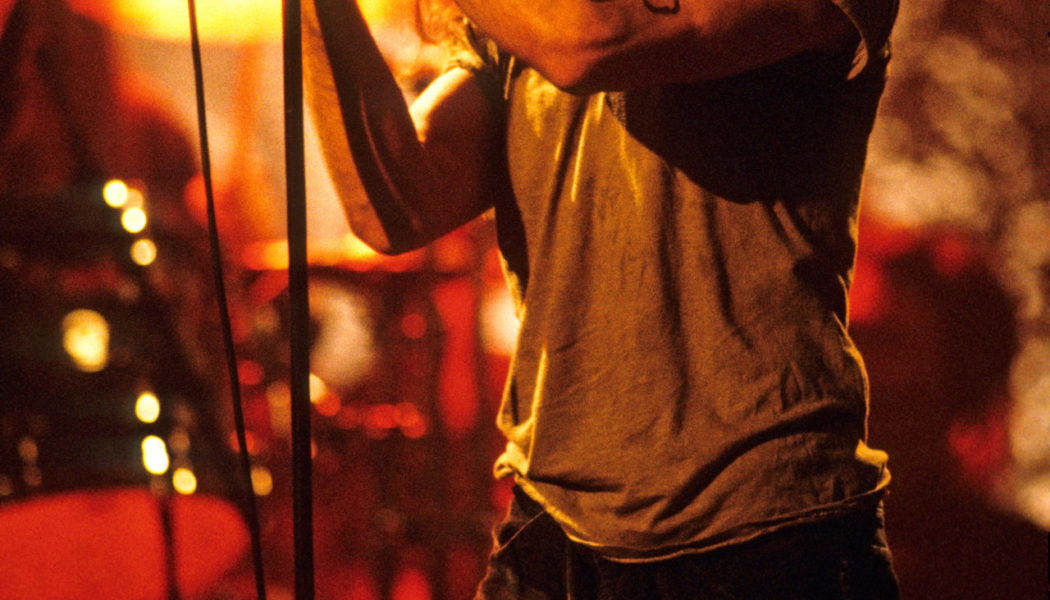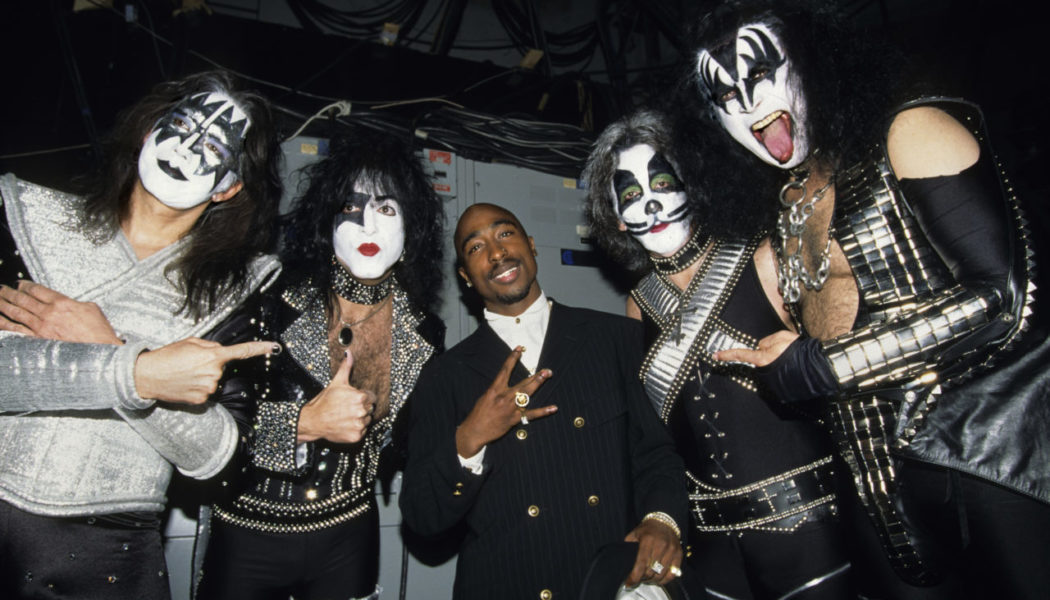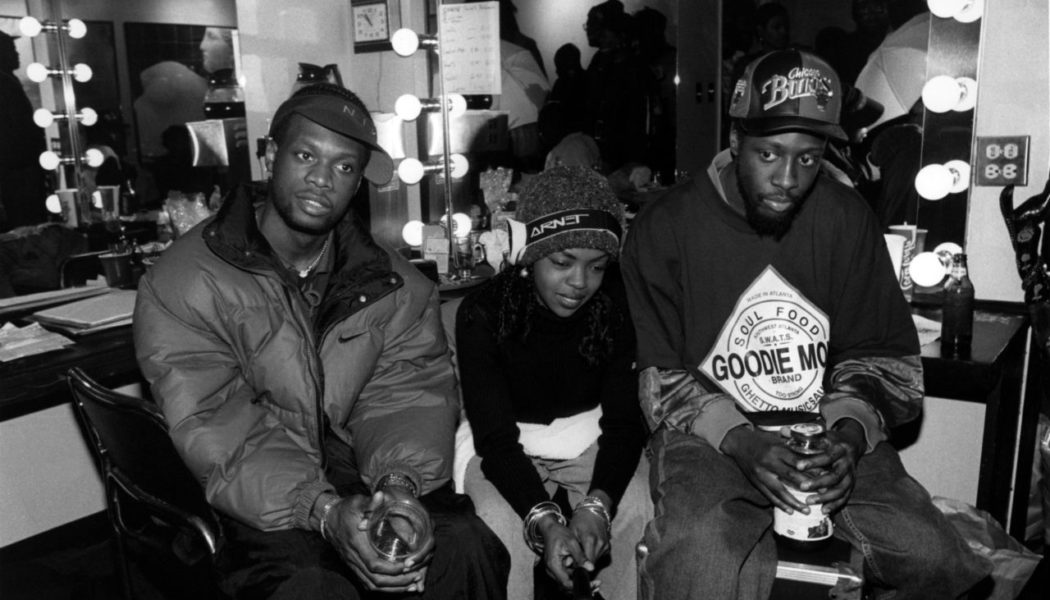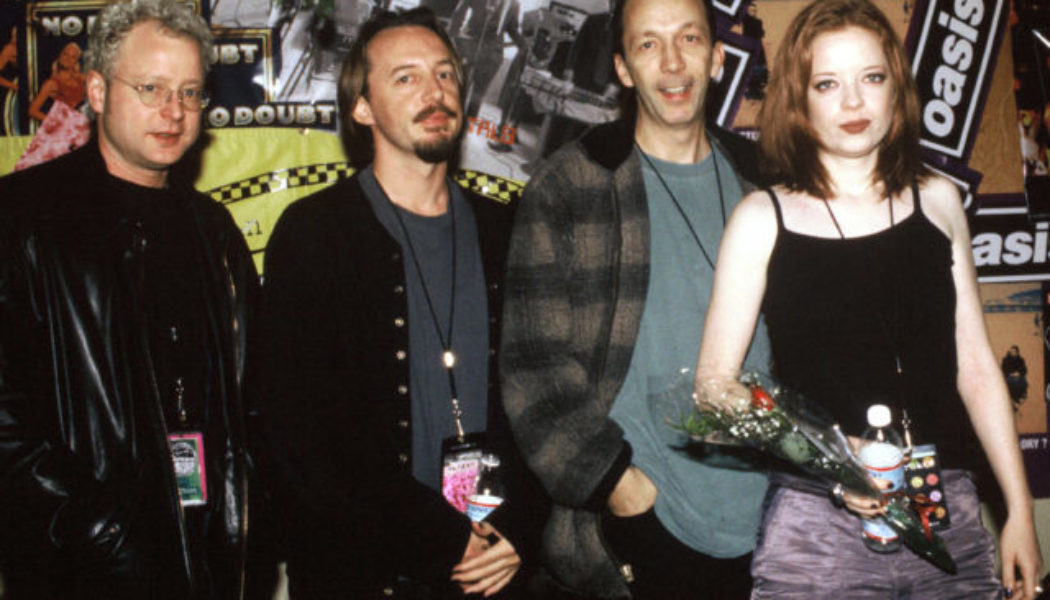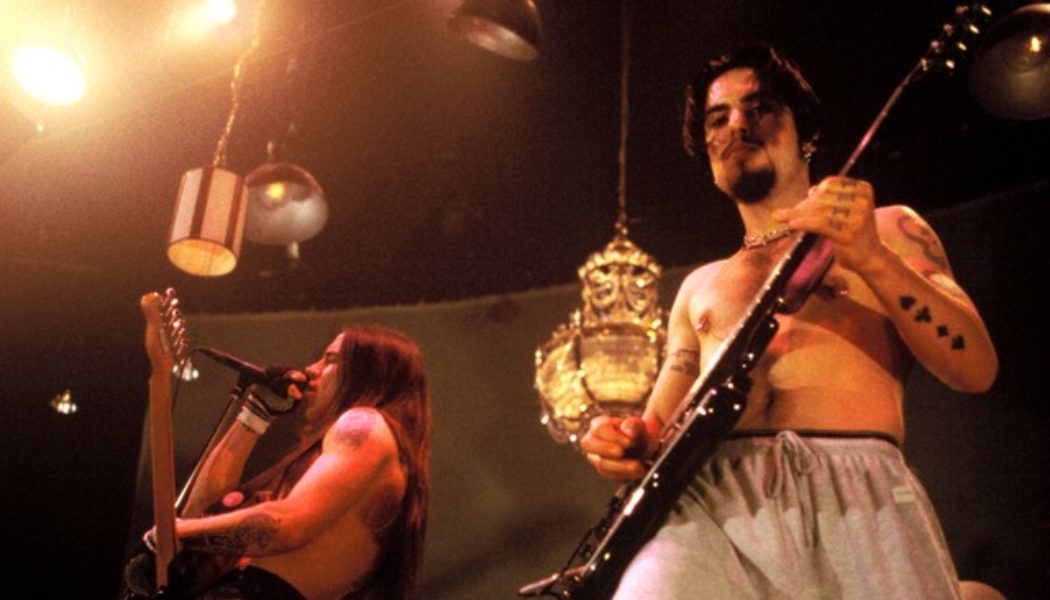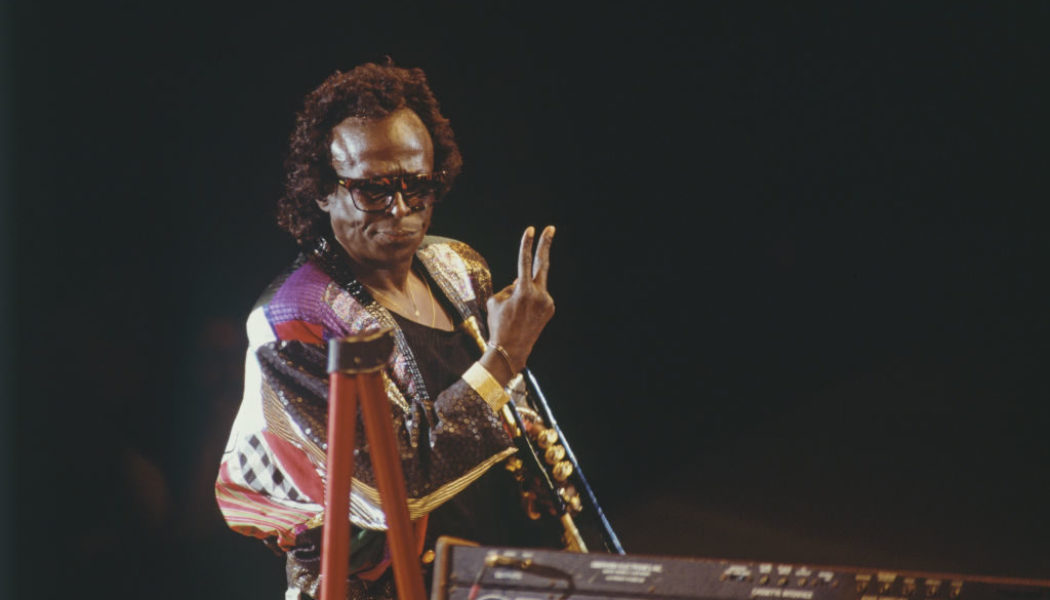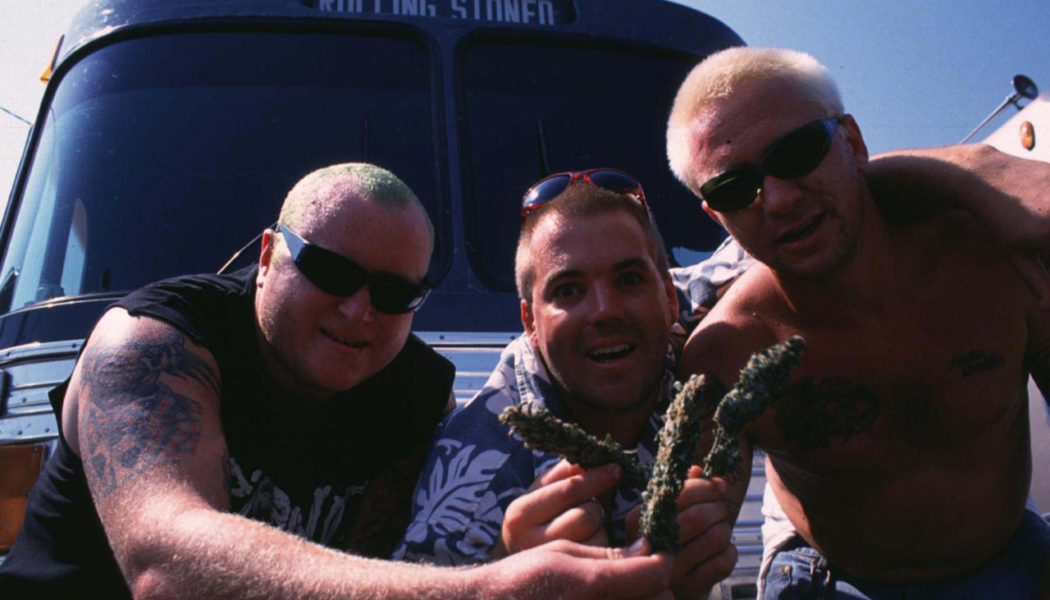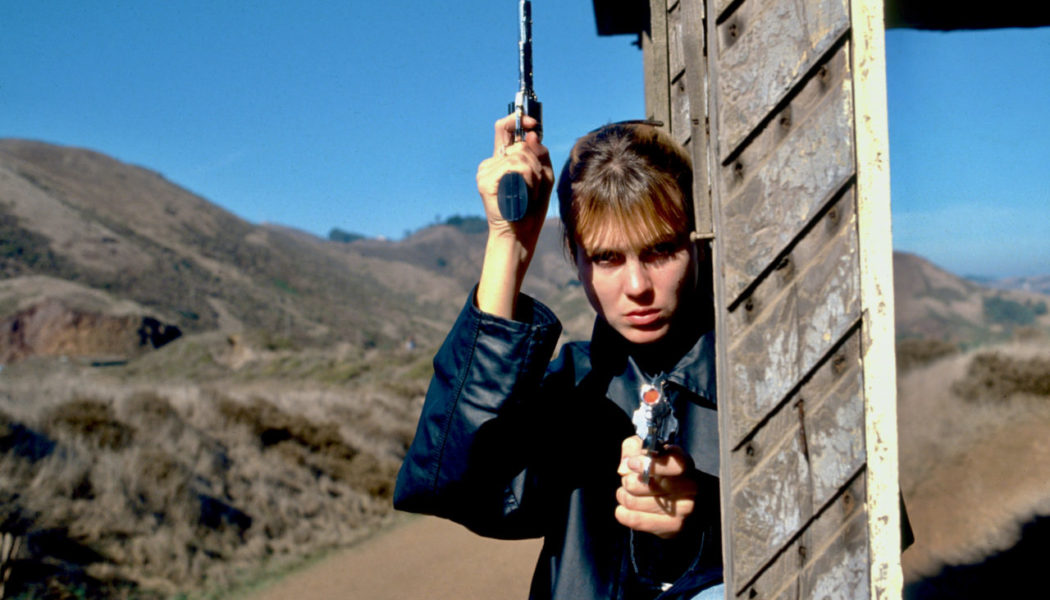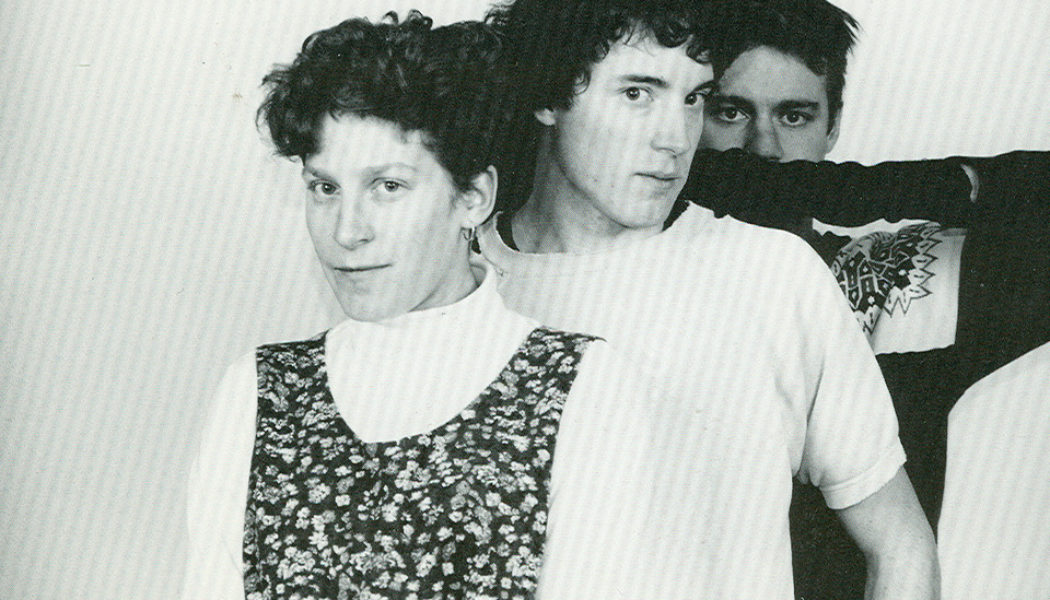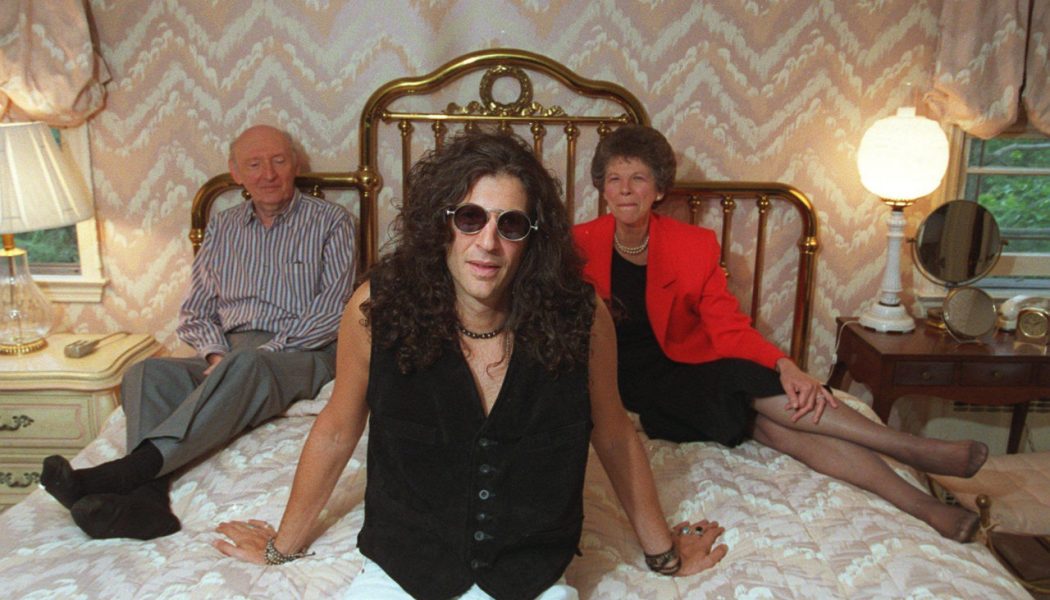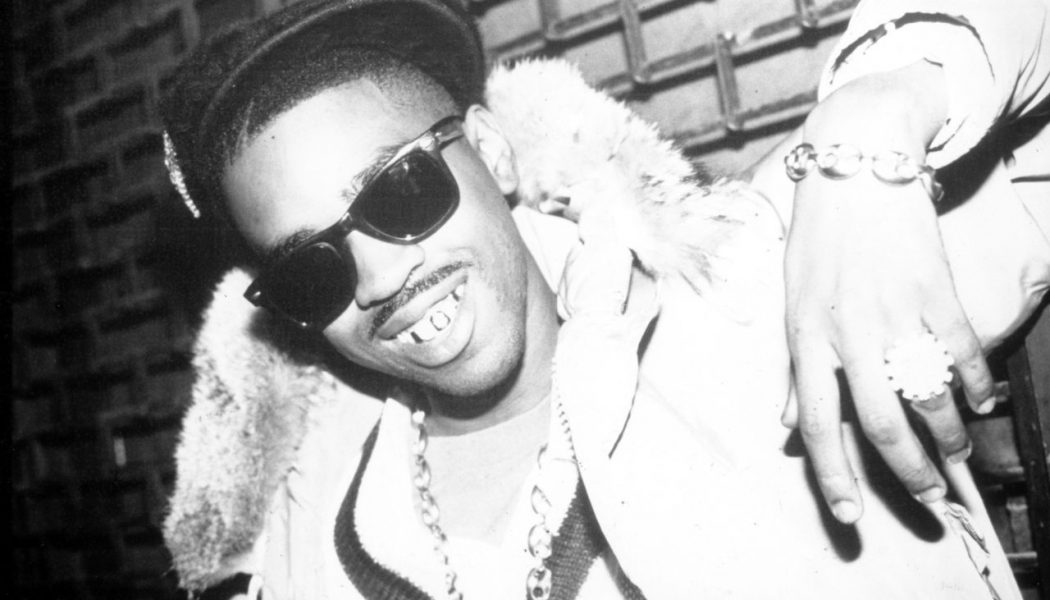1990s
Reclamation: Eddie Vedder’s 1992 Op-Ed on Abortion
This article originally appeared in the November 1992 issue of SPIN. Glasgow, Scotland. It’s cold outside. I’m thinking about a problem. One group of people trying to force their beliefs on others, based on religion. And it seems as though we’re regressing. Above, a helicopter flies by. If it continues on its course, it will shortly be over Ireland, where as of this writing, the powers that be are deciding if a 14-year-old girl who was raped by the father of one of her friends should be allowed to leave for Britain to obtain an abortion. She’s been ordered not to leave the country for nine months. Fourteen years old. Raped. The issue of an unborn fetus takes on more importance than the fact that the rapist walks free. Extreme, but this is a place where the church influences the government....
It’s Alive!: Our 1996 Kiss Cover Story
This article originally appeared in the August 1996 edition of SPIN. With Biography: KISStory airing tonight, we’re republishing the story here. Whoo-hoo, it’s a firehouse inside Gold’s Gym, a Hollywood sweatbox packed with waiters looking to be actors, actors looking to be bodybuilders, and bodybuilders looking at their reflection in the mirrored walls. In one corner, Paul Stanley, singer and rhythm guitarist in Kiss, and at 44 its youngest member, strains against the forces of nature as he hangs from the Gravitron. The man usually seen with a huge star across his face is, this Saturday afternoon, seeing stars. He may be masked for a living, but momentarily, dangling from the Gravitron, Stanley’s face contorts into a mask of pain. “All right, let’s do it!” barks Anton, the offi...
Killing You Softly: Our 1996 Fugees Feature
This article originally appeared in the April 1996 issue of SPIN. In hip-hop’s cosmology, “hardcore” rap means a cantankerous MC kicking rhymes like bodies over harsh, skeletal beats. “Alternative,” on the other hand—singing, melodies, instrumentation, any sort of peace-and-love attitude—translates as “no skills.” So hip-hop trio the Fugees—Wyclef “Clef” Jean, Lauryn “L” Hill, and Prakazrel “Pras” Michel—aren’t at all pleased to be in this section. “We are a hip-hop group, point blank,” says 20-year-old Hill, a doe-eyed gamine of startling beauty and as brawny and nimble a rapper as she is a rapturous soul singer. “‘Alternative’ is like saying ‘she’s attractive for a dark-skinned girl,’ a backhanded compliment. Just because we can play instruments, we can’t be real hip-hop? The reaso...
More Than a Woman: Our 1996 Garbage Feature
This article originally appeared in the April 1996 issue of SPIN. In honor of the release of Garbage’s seventh studio album No Gods No Masters, we’re republishing the story here. Garbage are standing on a pier looking out at the ocean. Suddenly Butch Vig spots something and points. “What’s that?” he wonders. Steve Marker squints. “Three seals?” he guesses. “I don’t think so,” says Duke Erikson. Shirley Manson pulls out her binoculars and checks. “Oh my God,” she pants. They realize it’s the sopping heads and flailing arms of Courtney Love, Kim Deal, and Alanis Morissette. They’re sinking fast. There’s only time to rescue one of them. Which alternative-rock superstar does Garbage decide to save? “Courtney Love,” says Manson. “Definitely. Undoubtedly.” “I have to say Courtney or ...
To Live and Die in L.A.: Our 1996 Red Hot Chili Peppers Cover Story
This article originally appeared in the April 1996 issue of SPIN. “Los Angeles is my favorite city in the world!” declares super foxy Red Hot Chili Peppers guitarist Dave Navarro, offering as proof of his conviction the city’s name tattooed on the back of his neck. “I would never live anywhere else.” Navarro, drummer Chad Smith, and I are wedged into Newsroom, a trendy Beverly Hills restaurant/coffee house/media mill where omnipresent TV monitors serve up the latest from the E! network with your rice-milk cappuccinos. “But I feel like the bad is taking over,” says Smith, an unadulterated rock dude and Detroit native who, Navarro says, wrote the book on that city’s infamous evening of arson known as Devil’s Night. “I wouldn’t want my kids growing up here,” admits Smith, who at age 33 s...
Smashing Pumpkins: Our 1991 Feature
This article was originally published in the December 1991 issue of SPIN. Smashing Pumpkins were one of our Artist of the Year runner-ups. In honor of Gish turning 30, we’re republishing this article. With its simultaneously childlike and ferocious debut album, gish (Caroline Records), the Chicago-based hard-soft psychedelia foursome Smashing Pumpkins exploded onto the 1991 indie-rock landscape with all the messy orange furor of its namesake. Even though the group disavowed any overt connections to Halloween or related vandalisms, the trick-or-treat dichotomy has proven to be a recurring theme during the Pumpkins’ short but illustrious career. Singer-guitarist-mastermind Billy Corgan, guitarist James lha, bassist D’Arcy Wretzky, and drummer Jimmy Chamberlin thrive on co...
Last Miles: Our 1991 Miles Davis Interview
A version of this story originally appeared in the December 1991 issue of SPIN. We’ve republished it on what would have been Miles Davis’ 95th birthday. I loved watching Harry Reasoner’s expression on 60 Minutes when Miles told him he felt there was nothing wrong with being a pimp: “Women liked me,” rasped the controversial, iconoclastic, horn-playing genius. Oh, Miles! I could hear women gasping from coast to coast! This man did speak his mind. I decided I finally had to get in touch with this gravelly-voiced musical messenger and get him to talk to me, even though the word was he wasn’t talking to anybody (not even to promote his just-released autobiography, Miles, for Simon and Schuster). And he is oh so difficult—authentic and stubborn. Good enough for me; I had to try. Mile...
Drug Bust: Our 1997 Sublime Feature
A version of this article originally appeared in the January 1997 issue of SPIN. On the 25th anniversary of Bradley Nowell’s death, we’re republishing the story here. The smog blows east from the coast and there’s nothing to obscure this rooftop Long Beach vantage. You can see the endless strip of sandy shoreline—which established Long Beach as a tourist mecca—and the nearby oil refineries—which helped foot the tab. Facing away from the beach, there’s a hint of LBC, the ghettosphere where gangstas plot revenge and their next hard-core hit. Look straight down in all directions, though, and you spot patches of backyard green, little plots punctuated by sprinklers, crabgrass, hibachis, and Evinrudes. This is the flagstone cradle that rocked Sublime into early prominence. “We were, like,...
Mystery Date: Our 1994 Juliana Hatfield Cover Story
A version of this article originally appeared in the March 1994 issue of SPIN. In honor of Juliana Hatfield’s latest album, Blood, being released on May 14, 2021, we’re republishing this story. It takes a lot of hard work to keep an enigma in motion. Juliana Hatfield has never been afraid of the fierce work ethic of enigma maintenance. “I get pleasure in being misrepresented,” she says casually, shredding a toothpick into a pile of splinters on the table, “because it proves that people can’t figure me out. It’s good that people don’t know the real me. I wouldn’t want people to really know me. That would be creepy.” Hatfield has certainly given her listeners a lot of personality crises to puzzle through. Her six albums—two solo, four with the Blake Babies—bristle with lush melod...
Beatific: Our 1993 Beat Happening Feature
A lot of what’s been written about Olympia, Washington’s finest-ever rock trio, Beat Happening, refers to its purported immaturity. The band has been pegged as “wide-eyed,” “naive,” and “childlike,” which would, I guess, be charming If it weren’t so wrongheaded. “I don’t mind when we get called childlike, but I don’t understand it,” says Beat Happening’s Lurch-throated singer-guitarist Calvin Johnson. “What’s childlike about ‘Revolution Come and Gone,’ or ‘Black Candy’?” Or for that matter, any number of Beat Happening’s heavy gems, such as “Red Head Walking,” or, from its wholly fab new LP, You Turn Me On, “Tiger Trap” and “Bury the Hammer”? For his part, Johnson prefers to think of the trio’s music as classic rock—not Classic Rock, mind you, like the Doors or Led Zeppelin or Bad Company,...
Lord of the Airwaves: Our 1993 Howard Stern Interview
This article originally appeared in the November 1993 issue of SPIN. On Long Island, where I live, Howard Stern is God. Lord and master of the airwaves, ruler of the turnpikes and expressways. All my friends are obsessive Howard fans, fanatics who listen to his radio show, watch him on cable, collect all his tapes and videos. They know every detail of his life, the lives of his extended family, his staff, and their extended families. So what was I supposed to ask Howard Stern? What don’t we already know about this self-described megalomaniac? This lunatic who sacrifices his personal life to our public domain, every day, five days a week, four to five hours a day and then some? <!– // Brid Player Singles. var _bp = _bp||[]; _bp.push({ “div”: “Brid_10143537&#...
I Fought the Law: Our 1991 Slick Rick Feature
This article was originally published in the August 1991 issue of SPIN. AT 5:28 P.M. on Tuesday, July 3, 1990, officers Rodriguez and Wong of the 47th Precinct in the Bronx got the call. “MB shots . . . six rounds . . . in black Toyota Camry . . . possibly fled on Parkway . . . 241 and White near OTB.” A black male (MB) had fired six rounds at East 241st Street and White Plains Road, near the Off-Track Betting outlet, before fleeing in a Toyota toward the Bronx River Parkway. It wasn’t a Toyota, but otherwise the radio alert matched the testimony given later by the gunman, one Ricky Walters, following his arrest. “I was driving a rent-a-car Dodge Shadow at East 241st Street and White Plains Road when I saw my cousin Mark,” Walters told the cops. “I drove home with my girlfriend, Lisa ...
